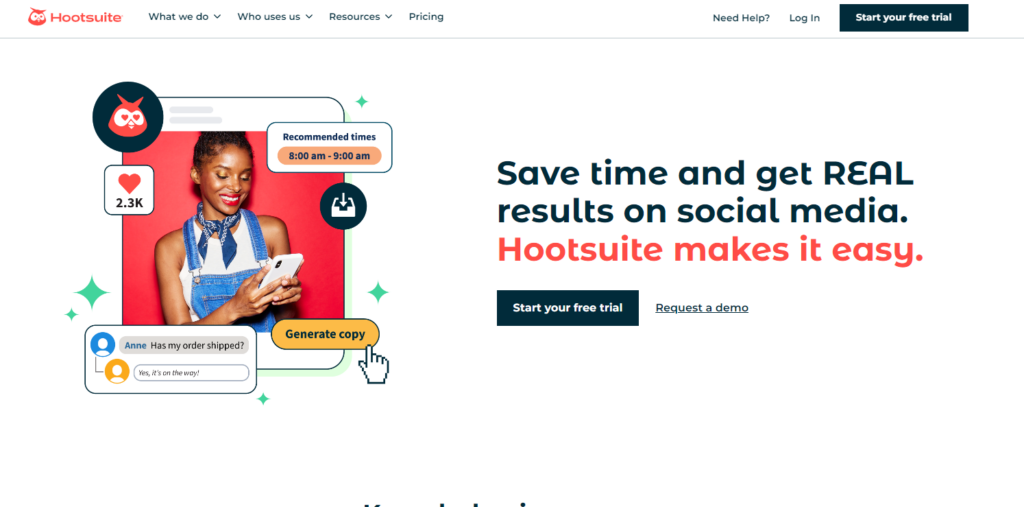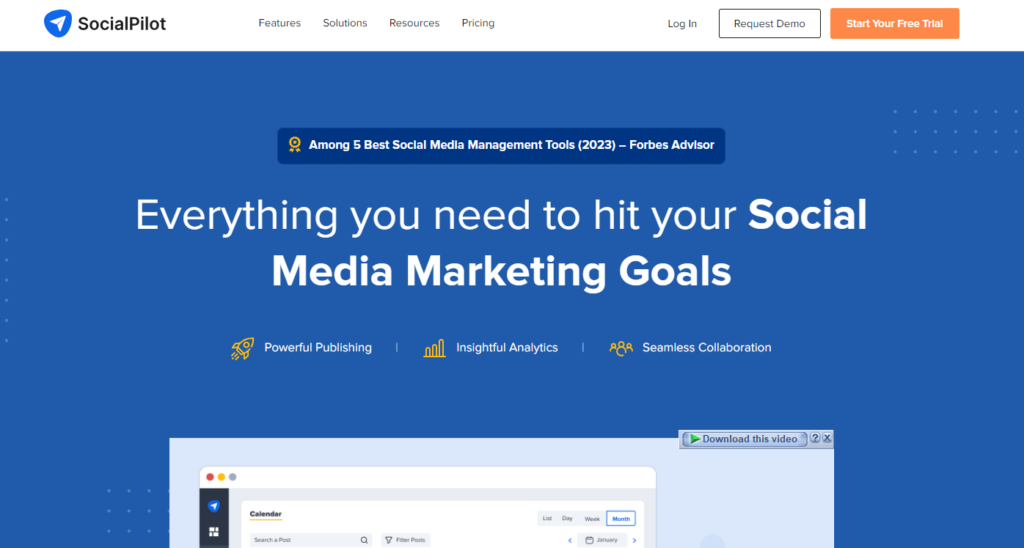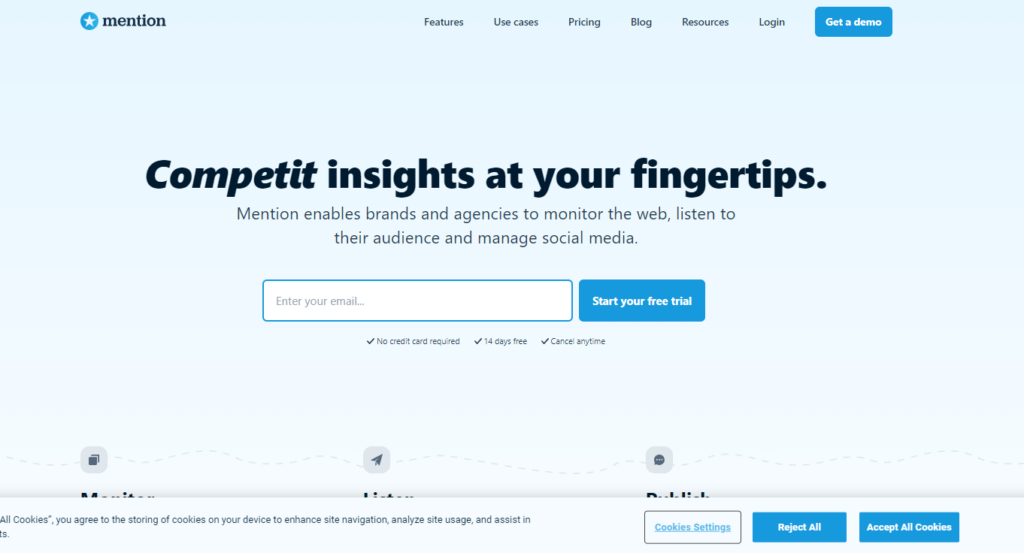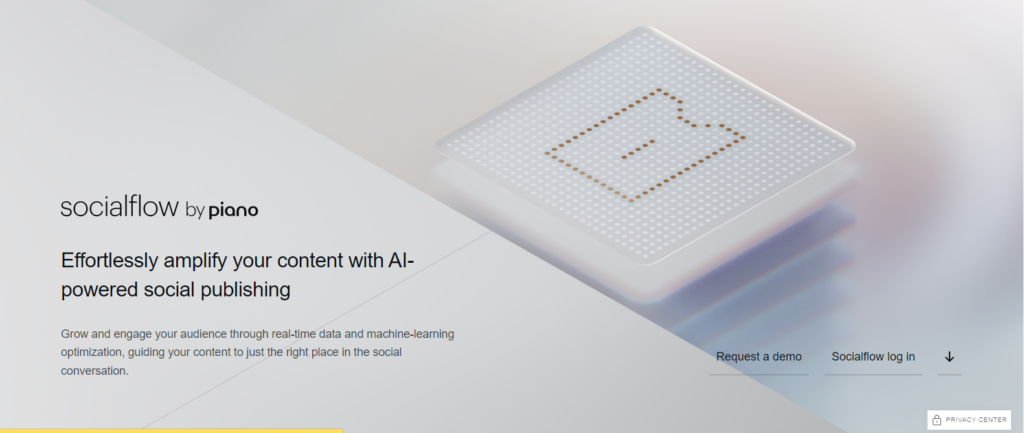15 Best Social Media Communication Tools
Are you looking to supercharge your social media communication and take your online presence to the next level? In today’s fast-paced digital world, effective communication is the key to building meaningful connections with your audience. Whether you’re a small business owner, a social media manager, or a content creator, having the right tools at your disposal can make all the difference.
In this article, we will explore the 15 best social media communication tools that will empower you to engage, interact, and thrive in the vibrant realm of social media. From scheduling and analytics to community management and collaboration, these tools are your secret weapons for mastering the art of social media communication. Get ready to transform your online presence and connect with your audience like never before!
Tool 1: Hootsuite

Description of the tool: Hootsuite is a popular social media management platform that allows users to manage and schedule content across multiple social media platforms. It provides a centralized dashboard for monitoring and engaging with social media conversations.
Key features and functionalities:
- Social media scheduling: Plan and schedule posts in advance across various platforms.
- Social media monitoring: Track and monitor brand mentions, hashtags, and keywords in real-time.
- Team collaboration: Collaborate with team members and assign tasks within the platform.
- Analytics and reporting: Measure social media performance with in-depth analytics and customizable reports.
Pricing information: Hootsuite offers different pricing plans starting from $29/month for individuals and small businesses, and custom pricing for larger enterprises.
Pros:
- Comprehensive social media management features.
- Supports a wide range of social media platforms.
- Robust analytics and reporting capabilities.
- Allows team collaboration and task assignment.
Cons:
- Some advanced features are available only in higher-priced plans.
- The interface can be overwhelming for beginners.
Use cases and examples:
- A marketing team using Hootsuite to schedule and publish social media posts across Facebook, Twitter, and Instagram.
- An organization monitoring social media conversations around their brand and industry using Hootsuite’s listening tools.
Tool 2: Buffer
Description of the tool: Buffer is a social media management platform that simplifies content scheduling and sharing across multiple social networks. It offers a user-friendly interface and integrates with various platforms for seamless management.
Key features and functionalities:
- Content scheduling: Plan and publish posts across social media platforms at optimal times.
- Social media analytics: Track engagement, reach, and other performance metrics to measure the effectiveness of your social media strategy.
- Team collaboration: Collaborate with team members, assign tasks, and manage workflows.
- RSS feed integration: Automatically share blog posts and articles from your favorite websites using the RSS feed feature.
Pricing information: Buffer offers a free plan with limited features, as well as paid plans starting from $15/month for individuals and small businesses. They also provide custom pricing for larger teams and enterprises.
Pros:
- User-friendly interface and easy scheduling process.
- Supports multiple social media platforms.
- Offers in-depth analytics and reporting features.
- Provides browser extensions for quick content sharing.
Cons:
- Some advanced features are available only in higher-priced plans.
- Limited social media listening and monitoring capabilities.
Use cases and examples:
- A small business using Buffer to schedule and publish posts on Facebook, Twitter, and LinkedIn.
- Individual influencer uses Buffer to manage and analyze their social media presence and engagement.
Tool 3: Sprout Social
Description of the tool: Sprout Social is a comprehensive social media management platform that enables businesses to efficiently manage their social media presence, engage with their audience, and measure performance.
Key features and functionalities:
- Social media scheduling: Plan and publish posts across multiple social media platforms.
- Social media listening: Monitor brand mentions, keywords, and hashtags to stay on top of relevant conversations.
- Social media analytics: Track engagement, audience growth, and other metrics to gauge the success of your social media efforts.
- CRM integration: Sync social media interactions with your customer relationship management (CRM) system.
Pricing information: Sprout Social offers several pricing plans, starting from $99/month per user. They also provide custom pricing for larger teams and enterprises.
Pros:
- Robust features for social media scheduling, monitoring, and analytics.
- Intuitive and user-friendly interface.
- Excellent customer support and training resources.
- Integration with popular CRM systems.
Cons:
- Higher pricing compared to some other tools in the market.
- Advanced features may require additional cost.
Use cases and examples:
- A marketing agency using Sprout Social to manage social media accounts for multiple clients.
- An e-commerce business leveraging Sprout Social to monitor and engage with customers across various social media channels.
Tool 4: Agorapulse
Description of the tool: Agorapulse is a social media management tool designed to simplify content scheduling, engagement, and reporting. It provides an all-in-one platform for managing social media accounts effectively.
Key features and functionalities:
- Content scheduling: Plan and publish posts on major social media platforms.
- Social media inbox: Consolidate messages and comments from different social media channels for streamlined engagement.
- Social media analytics: Measure key metrics, track performance, and generate reports to evaluate your social media strategy.
- Contest and promotion management: Create and run contests, sweepstakes, and promotions directly within the platform.
Pricing information: Agorapulse offers pricing plans starting from $99/month for small businesses, with custom pricing available for larger teams and enterprises.
Pros:
- Intuitive and easy-to-use interface.
- Unified social media inbox for streamlined engagement.
- Robust reporting and analytics capabilities.
- Built-in tools for running social media contests and promotions.
Cons:
- Limited integration options with third-party apps and platforms.
- Some advanced features are available only in higher-priced plans.
Use cases and examples:
- A digital agency using Agorapulse to manage multiple clients’ social media accounts and streamline their engagement efforts.
- An event organizer leveraging Agorapulse to run social media contests and promotions to boost audience engagement.
Tool 5: SocialPilot

Description of the tool: SocialPilot is a social media scheduling and management tool that caters to businesses of all sizes. It offers a range of features to simplify content planning, publishing, and analysis.
Key features and functionalities:
- Content scheduling: Plan and schedule posts across various social media platforms.
- Social media analytics: Track and analyze engagement, audience growth, and other performance metrics.
- Client management: Manage and organize multiple client accounts within a single interface.
- Bulk scheduling: Upload and schedule multiple posts in bulk, saving time and effort.
Pricing information: SocialPilot offers different pricing plans starting from $30/month for individuals and small businesses, with custom pricing options for larger teams and agencies.
Pros:
- Affordable pricing plans.
- User-friendly interface and easy scheduling process.
- Allows management of multiple client accounts.
- Bulk scheduling feature for efficient content planning.
Cons:
- Limited advanced features compared to some other tools in the market.
- The analytics and reporting capabilities may not be as robust as in other platforms.
Use cases and examples:
- A freelance social media manager using SocialPilot to schedule and manage social media content for multiple clients.
- A small business owner using SocialPilot to streamline their social media posting process and track engagement metrics.
Tool 6: Sprinklr
Description of the tool: Sprinklr is an enterprise-level social media management platform that enables large organizations to manage their social media presence, engage with customers, and gather insights across various channels.
Key features and functionalities:
- Social media publishing: Schedule and publish content across multiple social media platforms.
- Social media listening: Monitor conversations, trends, and brand mentions to stay informed and engage proactively.
- Social media analytics: Measure and analyze social media performance, customer sentiment, and market trends.
- Workflow and collaboration: Streamline team collaboration, approvals, and content management within the platform.
Pricing information: Sprinklr offers custom pricing tailored to enterprise needs. Pricing details can be obtained by contacting the Sprinklr sales team directly.
Pros:
- Enterprise-grade social media management capabilities.
- Scalable and customizable to suit large organizations.
- Advanced analytics and reporting features.
- Robust collaboration and workflow management tools.
Cons:
- Higher pricing compared to other tools on the market.
- Complex implementation and learning curve for new users.
Use cases and examples:
- A multinational corporation utilizing Sprinklr to manage social media activities, engage with customers, and analyze market trends across different regions.
- An e-commerce company leveraging Sprinklr to track customer sentiment, manage social media campaigns, and measure the effectiveness of its social media strategies.
Tool 7: Sendible
Description of the tool: Sendible is a social media management tool that offers a comprehensive suite of features for content planning, publishing, and analysis. It caters to businesses of all sizes, from small businesses to large agencies.
Key features and functionalities:
- Social media scheduling: Plan and publish posts across major social media platforms.
- Social media analytics: Track engagement, reach, and other performance metrics with detailed reports.
- Client management: Organize and manage multiple client accounts within a single interface.
- Brand monitoring: Monitor brand mentions and industry trends to stay informed and respond promptly.
Pricing information: Sendible offers various pricing plans starting from $29/month for individuals and small businesses. Custom pricing options are available for larger teams and agencies.
Pros:
- User-friendly interface with a range of social media management features.
- Robust analytics and reporting capabilities.
- Comprehensive client management tools.
- Offers white labeling and customization options.
Cons:
- Advanced features may require higher-priced plans.
- Some users may find the learning curve steep initially.
Use cases and examples:
- A social media agency using Sendible to manage and schedule content for multiple clients, while monitoring brand mentions and generating performance reports.
- A small business owner using Sendible to streamline their social media activities, schedule posts, and track engagement metrics.
Tool 8: Falcon.io
Description of the tool: Falcon.io is a social media management platform designed to help businesses effectively manage their social media presence, engage with their audience, and measure the impact of their social media efforts.
Key features and functionalities:
- Social media publishing: Schedule and publish content across various social media platforms.
- Social media listening: Monitor conversations, keywords, and brand mentions in real-time.
- Social media analytics: Measure key performance metrics, track audience growth, and generate customized reports.
- Customer engagement: Respond to comments, messages, and reviews across different social media channels.
Pricing information: Falcon.io offers custom pricing based on individual business needs. Pricing details can be obtained by contacting the Falcon.io sales team directly.
Pros:
- Robust social media management features.
- Real-time social media listening and monitoring capabilities.
- Advanced analytics and reporting functionalities.
- Offers customer engagement tools for enhanced communication.
Cons:
- Pricing may be higher for smaller businesses or individuals.
- The interface can be complex for new users.
Use cases and examples:
- A multinational company utilizing Falcon.io to manage its social media presence, engage with customers across different regions and analyze campaign performance.
- A customer support team using Falcon.io to monitor social media channels, respond to customer queries, and gather feedback for product improvement.
Tool 9: CoSchedule
Description of the tool: CoSchedule is a comprehensive marketing calendar and social media management platform that helps businesses plan, organize, and execute their marketing campaigns across multiple channels.
Key features and functionalities:
- Marketing calendar: Plan and visualize marketing campaigns, including social media content, blog posts, and email marketing.
- Social media scheduling: Schedule and publish social media posts across various platforms.
- Analytics and reporting: Track social media performance, content engagement, and campaign success with detailed reports.
- Team collaboration: Coordinate and streamline marketing activities with team members through task management and workflow automation.
Pricing information: CoSchedule offers pricing plans starting from $40/month for individuals and small teams. Custom pricing is available for larger teams and enterprises.
Pros:
- Integrated marketing calendar for holistic campaign planning.
- Easy-to-use interface with drag-and-drop functionality.
- Detailed analytics and reporting features.
- Efficient team collaboration and task management.
Cons:
- Some advanced features are available only in higher-priced plans.
- The learning curve for the calendar interface may require some initial familiarization.
Use cases and examples:
- A marketing team using CoSchedule to plan and execute their social media campaigns, blog posts, and email marketing initiatives from a centralized calendar.
- A content creator using CoSchedule to organize and schedule social media content in alignment with their editorial calendar.
Tool 10: Mention

Description of the tool: Mention is a social media listening and monitoring tool that helps businesses track brand mentions, monitor industry trends, and engage with their audience in real-time.
Key features and functionalities:
- Brand monitoring: Monitor brand mentions, keywords, and hashtags across social media platforms and the web.
- Social media listening: Stay updated on conversations, trends, and competitor activities.
- Sentiment analysis: Understand the sentiment behind brand mentions and customer opinions.
- Real-time notifications: Receive alerts and notifications when brand-related conversations occur.
Pricing information: Mention offers pricing plans starting from $25/month for individuals and small businesses. Custom pricing is available for larger teams and enterprises.
Pros:
- Comprehensive brand monitoring and social listening capabilities.
- Real-time notifications for immediate engagement opportunities.
- User-friendly interface and easy setup process.
- Supports multiple languages for global monitoring.
Cons:
- Some advanced features may require higher-priced plans.
- The sentiment analysis may not be as accurate compared to specialized sentiment analysis tools.
Use cases and examples:
- A marketing team using Mention to monitor brand mentions, track competitor activities, and engage with customers on social media.
- An online retailer using Mention to keep track of customer reviews and opinions about their products and promptly respond to feedback.
Tool 11: Sprout AI
Description of the tool: Sprout AI is an advanced social media communication tool that leverages artificial intelligence (AI) to streamline social media management, automate processes, and optimize engagement strategies.
Key features and functionalities:
- Social media automation: Automate tasks such as content scheduling, responding to messages, and engaging with followers.
- AI-driven insights: Gain actionable insights and recommendations based on AI analysis of social media data.
- Sentiment analysis: Understand customer sentiment towards your brand and products.
- Smart replies: Utilize AI-generated suggested replies to respond to messages and comments efficiently.
Pricing information: Pricing details for Sprout AI can be obtained by contacting the Sprout AI sales team directly.
Pros:
- Advanced AI capabilities for automating social media management.
- Data-driven insights and recommendations for optimizing engagement strategies.
- Efficient customer sentiment analysis.
- AI-generated smart replies for quick and accurate responses.
Cons:
- Availability and pricing may vary based on the stage of development of Sprout AI.
Use cases and examples:
- A large-scale e-commerce company using Sprout AI to automate social media processes, analyze customer sentiment, and optimize engagement strategies.
- A customer support team utilizing Sprout AI to streamline responses to customer inquiries and provide personalized support at scale.
Tool 12: Brandwatch
Description of the tool: Brandwatch is a powerful social listening and analytics tool that helps businesses monitor brand mentions, track customer sentiment, and gain insights into market trends and industry conversations.
Key features and functionalities:
- Social media listening: Monitor brand mentions, keywords, and industry trends across various social media platforms.
- Sentiment analysis: Understand the sentiment behind customer opinions and mentions.
- Influencer identification: Identify and analyze key influencers in your industry.
- Competitive analysis: Track and compare your brand’s performance against competitors.
Pricing information: Brandwatch offers custom pricing based on individual business needs. Pricing details can be obtained by contacting the Brandwatch sales team directly.
Pros:
- Advanced social media listening and sentiment analysis capabilities.
- Powerful influencer identification and competitive analysis features.
- Robust data visualization and reporting functionalities.
- Integration with other data sources for comprehensive insights.
Cons:
- Higher pricing compared to some other tools on the market.
- The learning curve for advanced features and data analysis may be steep for new users.
Use cases and examples:
- A marketing agency using Brandwatch to track brand mentions, monitor industry conversations, identify influencers, and analyze competitor strategies.
- A global brand utilizing Brandwatch to gather insights on customer sentiment and opinions about its products and services across different regions.
Tool 13: Socialbakers
Description of the tool: Socialbakers is a social media marketing suite that offers a range of features for content planning, publishing, analytics, and advertising. It provides insights and recommendations to optimize social media strategies.
Key features and functionalities:
- Content planning and scheduling: Plan and publish social media posts across various platforms.
- Social media analytics: Track and measure social media performance, audience engagement, and campaign success.
- Competitor analysis: Benchmark your performance against competitors and identify opportunities for improvement.
- Advertising management: Manage and optimize social media advertising campaigns.
Pricing information: Socialbakers offers custom pricing based on individual business needs. Pricing details can be obtained by contacting the Socialbakers sales team directly.
Pros:
- Comprehensive social media marketing suite with a wide range of features.
- Advanced analytics and reporting capabilities.
- Competitor analysis for benchmarking and strategic insights.
- Advertising management tools for optimizing campaign performance.
Cons:
- Pricing may be higher for smaller businesses or individuals.
- The interface can be overwhelming for beginners.
- Some advanced features may require additional training or expertise.
Use cases and examples:
- A digital marketing team using Socialbakers to plan and execute social media campaigns, analyze performance metrics, and optimize advertising strategies.
- An e-commerce business leveraging Socialbakers to monitor competitor activities, identify market trends, and improve its social media presence.
Tool 14: AgoraPulse
Description of the tool: AgoraPulse is a social media management tool that helps businesses schedule, publish, and analyze their social media content. It offers a user-friendly interface and provides features for team collaboration and engagement.
Key features and functionalities:
- Content scheduling: Plan and schedule social media posts across various platforms.
- Social media inbox: Consolidate all social media messages and comments in one unified inbox.
- Social media analytics: Track performance metrics, audience engagement, and content reach.
- Team collaboration: Assign tasks, collaborate with team members, and streamline workflow.
Pricing information: AgoraPulse offers different pricing plans starting from $99/month for small businesses. Custom pricing options are available for larger teams and agencies.
Pros:
- Intuitive and user-friendly interface.
- Unified inbox for efficient engagement.
- Robust analytics and reporting features.
- Collaboration tools for team management.
Cons:
- Some advanced features are available only in higher-priced plans.
- Limited social listening and monitoring capabilities.
Use cases and examples:
- A marketing agency using AgoraPulse to manage multiple clients’ social media accounts, schedule posts, and engage with their audience.
- A small business owner using AgoraPulse to streamline social media management, track performance metrics, and engage with customers.
Tool 15: SocialFlow

Description of the tool: SocialFlow is a social media optimization platform that uses artificial intelligence to analyze audience data and optimize the distribution of social media content for maximum engagement and reach.
Key features and functionalities:
- Content optimization: Analyze audience data and optimize the timing and targeting of social media content.
- Social media analytics: Track and measure the performance of social media posts, campaigns, and audience engagement.
- Data-driven recommendations: Receive insights and recommendations for improving content strategy and distribution.
- Team collaboration: Collaborate with team members and coordinate social media activities within the platform.
Pricing information: SocialFlow offers custom pricing based on individual business needs. Pricing details can be obtained by contacting the SocialFlow sales team directly.
Pros:
- Advanced AI-powered optimization capabilities.
- Data-driven recommendations for content strategy improvement.
- Comprehensive analytics and reporting features.
- Collaboration tools for team coordination.
Cons:
- Pricing may be higher for smaller businesses or individuals.
- The learning curve for advanced features and data analysis may be steep for new users.
Use cases and examples:
- A media company using SocialFlow to optimize the distribution of their articles and videos across social media platforms for maximum engagement and reach.
- An e-commerce business leveraging SocialFlow to analyze audience data, optimize content timing, and improve social media performance.
Please note that pricing information and specific features may change over time, so it’s advisable to visit the respective tool’s official website for the most up-to-date information.
Conclusion
Selecting the right social media communication tools is crucial for successful social media management. These tools offer various features such as scheduling, monitoring, analytics, collaboration, and engagement, allowing businesses to effectively plan, publish, analyze, and engage with their audience on social media platforms.
When choosing a tool, consider factors such as your specific needs, budget, user-friendliness, scalability, and integration capabilities. It’s important to align the tool’s features with your social media communication goals and ensure it supports the platforms you utilize.
By utilizing the best social media communication tools, businesses can streamline their processes, enhance engagement, track performance, and make data-driven decisions to optimize their social media strategies and effectively communicate with their target audience.
